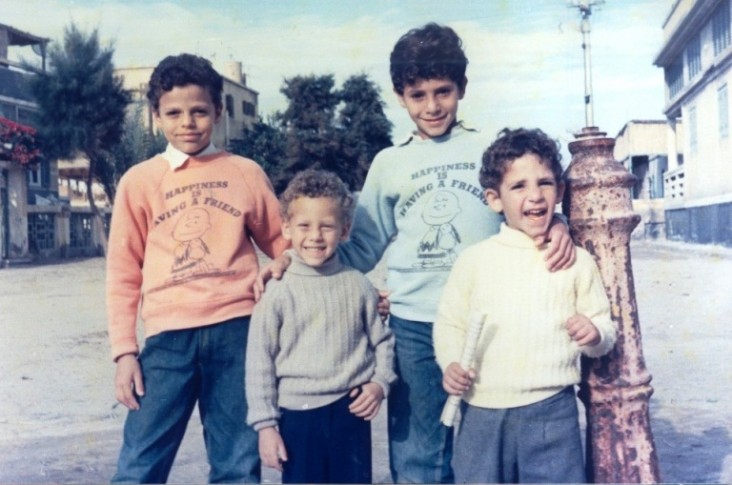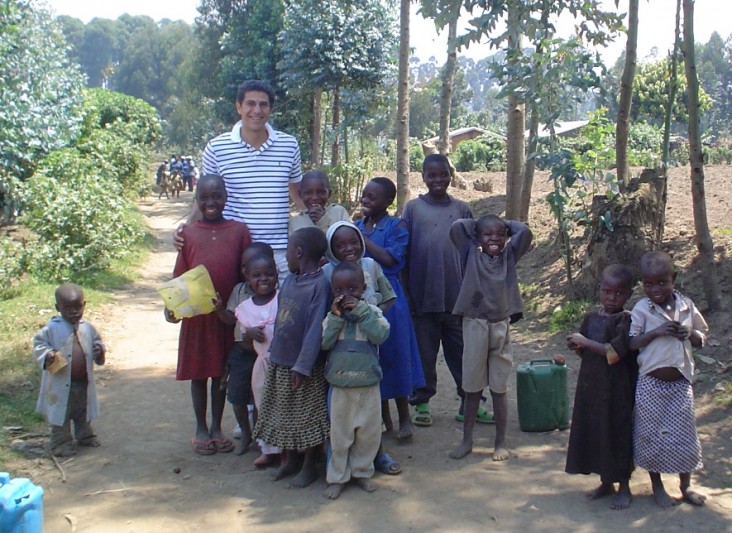- What We Do
- Agriculture and Food Security
- Democracy, Human Rights and Governance
- Economic Growth and Trade
- Education
- Ending Extreme Poverty
- Environment and Global Climate Change
- Gender Equality and Women's Empowerment
- Global Health
- Water and Sanitation
- Working in Crises and Conflict
- U.S. Global Development Lab
Staff Spotlight is a series created by the GH Communications Team that features personal interviews with GH staff. By sharing the stories of various staff members’ backgrounds and experiences, we hope this series will help bring USAID’s global community closer together. This week we’d like to introduce Sherif Mowafy, Deputy Division Chief, Supply Chain Management System for HIV/AIDS at USAID Washington.

Q: How did you get involved in development work?
A:I was 14 years old when my family and I returned to Port Said, our hometown. We had been evacuated in 1967, immediately after the war between Egypt and Israel started. We had stayed out of the “war zone” for six years. Herbert Jones Co. was the name of a U.S. company that was responsible for renovating the water and wastewater system in the town. I liked what they did. I, too, like to “fix things.” The work the U.S. Agency for International Development (USAID) had done changed our lives – we had fresh water running regularly. At that time, contractors were unable to post USAID names or logos, so I didn’t know about the Agency until I worked for the USAID Mission in Cairo in 1989. I wanted to fix all things wrong in Egypt, my country of origin. From that date onward, I was associated with USAID and development one way or another, and I have not pursued any other career since.

Q: If you weren’t working in development or public health, what would you be doing? Why?
A:The development work that USAID does is unparalleled, and while in the past we didn’t take much credit for what we achieved, we made a huge footprint all over the developing world. We improved people’s lives in many ways. I know I have been a beneficiary of USAID’s hard work!
There can’t be a job that is as rewarding and satisfying as what I’m doing now. We get to save lives for a living! You know I wouldn’t be in any other field!

Q: What might someone be surprised to learn about you?
A: I’m an amateur paint artist. I love painting, colors, brushes, and canvas! Although it was my dream to study art, I was never able to do so or to paint as a professional. I do paint now, although infrequently. I plan to spend more time painting after I retire! Some of my paintings will be in the Combined Federal Campaign’s silent auction this fall!
Q: What’s the hardest thing you’ve ever done?
A: Coming to the United States was by far the hardest decision I ever made. Starting over at the age of 44 was not an easy task for a Middle Eastern man – especially after September 11. My wife and I decided to move in order to provide our daughter with better education, but the cultural shock for my family was overwhelming. Our two little girls spoke Arabic and French and not a single English word, yet they went to school one week after they arrived! We had to learn English all over again. You see, when we worked at the Mission in Cairo, we only talked business. When I went to Home Depot to buy tools or took my car to be serviced, I had no idea what to ask for!
Q: If you could witness any event – past, present or future – what would it be, and why?
A: Peace. When we “humans” stop killing each other! When you, he and I, a Jew, a Christian and a Muslim can sit, chat and laugh over a cup of coffee, and walk away looking forward to our next gathering.
PAST SPOTLIGHTS
Kent Klindera, Health Systems Strengthening Advisor for HIV/AIDS
Nithya Mani, Implementation Support Division Chief for HIV/AIDS
Diana Frymus, Health Systems Strengthening Advisor for HIV/AIDS
Sherif Mowafy, Deputy Division Chief, Supply Chain Management System for HIV/AIDS
Ryan Phelps, Medical Officer, USAID Office of HIV/AIDS
Kendra Phillips, Implementation Support Division Chief, USAID Office of HIV/AIDS.
Margaret McCluskey, Senior Technical Advisor for Vaccines, USAID Office of HIV/AIDS.







Comment
Make a general inquiry or suggest an improvement.